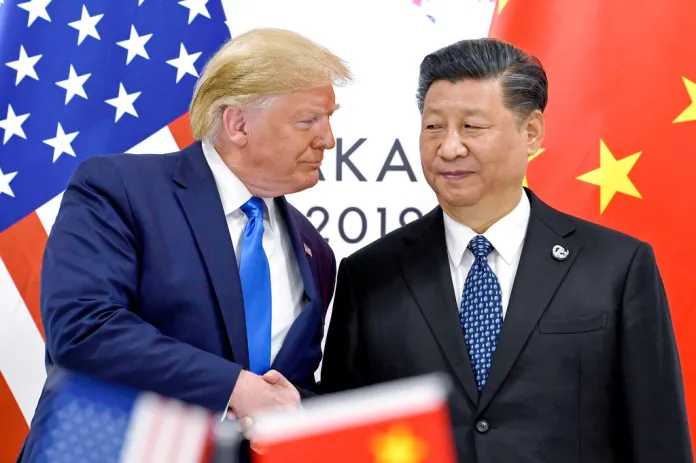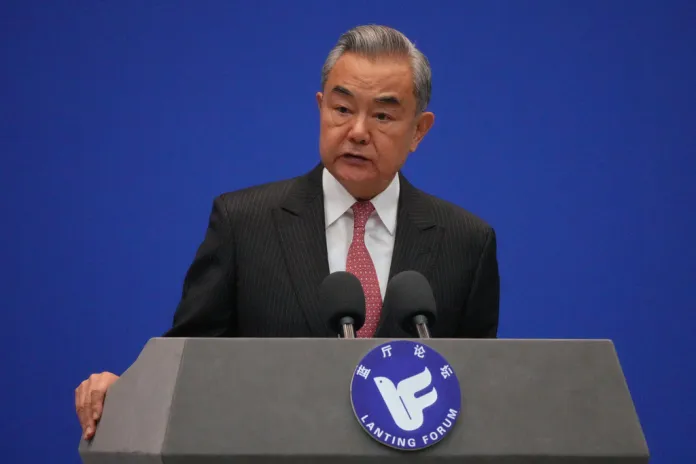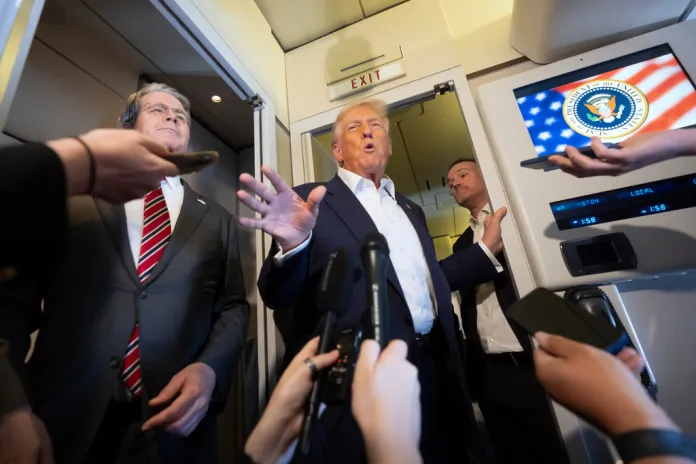Chinese officials are playing nice with their U.S. counterparts ahead of the two nations’ trade talks in South Korea, but Beijing remains confident that its influence will continue to cut into American hegemony.
Secretary of State Marco Rubio spoke with his Chinese counterpart, Foreign Minister Wang Yi, on Monday ahead of the “high-level interactions” between President Donald Trump and Chinese President Xi Jinping on Thursday.
The Chinese read-out of the conversation took an optimistic and conciliatory tone, affirming that despite having recently “experienced some twists and turns,” the two nations have “long-standing exchanges” and “respect each other.”
Wang specifically touted the relationship between Trump and Xi as the “most valuable strategic asset in China-U.S. relations.”

The Chinese government said the two nations are mutually “committed to resolving conflicts through dialogue and abandon the practice of exerting pressure at will.”
The State Department‘s read-out, by contrast, was clinical and cold, affirming only that the two leaders “discussed the importance of the U.S.-China relationship and the upcoming meeting.”
On the same day as the phone conversation, Wang delivered a speech at the Beijing office of the Ministry of Foreign Affairs for the Lanting Forum on Improving Global Governance to Build a Community with a Shared Future for Humanity.
In that address, Wang took thinly veiled swipes at the Trump administration’s trade policies and international diplomacy.
“Frequently withdrawing from agreements and reneging on commitments, while enthusiastically forming blocs and cliques, has subjected multilateralism to unprecedented challenges,” Wang said without citing the United States by name.
In an explicit rebuke of the current era’s U.S.-centered unipolar hegemony, Wang asserted that “politicizing economic and trade issues, artificially fragmenting global markets, and resorting to trade wars and tariff battles” will not deter the growth of Chinese power worldwide.
“The tide of history cannot be reversed, and a multipolar world is coming,” he warned.

Treasury Secretary Scott Bessent announced on Sunday that both sides have already agreed to a “framework” for a deal.
“President Trump gave me a great deal of negotiating leverage with the threat of the 100% tariffs, and I believe we’ve reached a very substantial framework that will avoid that and allow us to discuss many other things with the Chinese,” Bessent said in an interview with NBC.
U.S. and Chinese officials both acknowledged on Sunday that rounds of negotiations in Malaysia had already reached agreements on matters such as tariffs, exports, and fentanyl trafficking.
The Chinese Communist Party’s newspaper, the People’s Daily, insisted in a Monday article that “neither side was blindsided by these issues, instead they focused on solving the problems.”
“The two sides should meet each other halfway, cherish outcomes of every dialogue and continuously build mutual trust and manage differences,” said the government article, written under the “Voice of China” pseudonym.
Among the most anxious third parties ahead of the Trump-Xi summit is Taiwan, an island nation allied with the U.S. but under constant threat of invasion by mainland China.
For weeks, experts have speculated whether support for Taiwan is considered a bargaining chip for Trump regarding the trade deal with Xi, for whom the reconquest of the island is an ultimate goal of his remaining years in office.
“I don’t want to talk about that now. I don’t want to create any complexity. The trip is already complex enough,” Trump told reporters aboard Air Force One on his way to Asia.

TRUMP HAS BEGUN ASIA TRIP WITH MAJOR TRADE DEAL AND OPENNESS TO MEETING KIM JONG UN
Rubio offered reassurance that support for Taiwan would not be negotiable at the summit while speaking with the press over the weekend.
“I don’t think you’re going to see some trade deal where, if what people are worried about is we’re going to get some trade deal, or we’re going to get favorable treatment on trade in exchange for walking away from Taiwan,” Rubio told reporters. “No one is contemplating that.”
